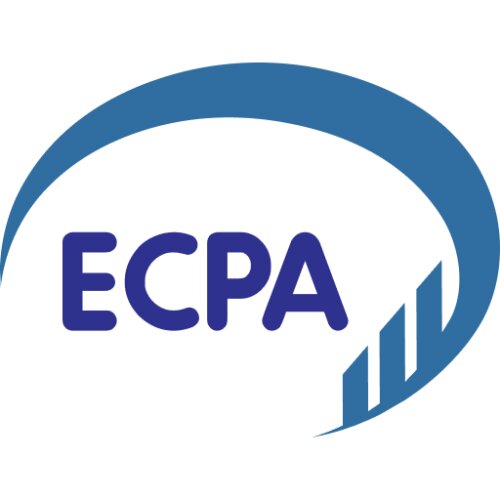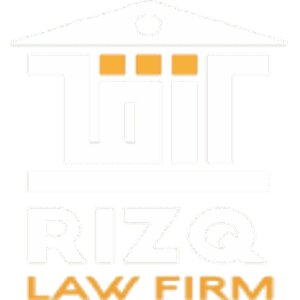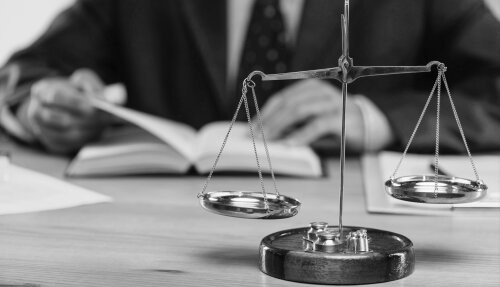Best Due Diligence Lawyers in Heliopolis
Share your needs with us, get contacted by law firms.
Free. Takes 2 min.
List of the best lawyers in Heliopolis, Egypt
About Due Diligence Law in Heliopolis, Egypt
Due diligence is the process of investigating and verifying facts, legal status, financial health and regulatory compliance before entering into a transaction or making a major decision. In Heliopolis - a historic district of Greater Cairo with a mix of residential, commercial and institutional properties - due diligence commonly focuses on real estate, corporate transactions, local regulatory compliance and tax matters. While the underlying legal framework is national - set by Egyptian laws and regulations - local practices and administrative procedures in Heliopolis and the Cairo Governorate can affect how quickly and easily searches, registrations and approvals are obtained.
Why You May Need a Lawyer
Legal support is essential in many due diligence scenarios because of complex paperwork, local registration systems and potential legal exposure. Common situations where people need a lawyer include:
- Buying or selling real estate in Heliopolis - to verify title, Tabu entries, building permits and zoning compliance.
- Purchasing a company or acquiring shares - to review corporate records, shareholder agreements, outstanding liabilities and litigation.
- Leasing commercial space - to negotiate lease terms, review landlord rights and ensure necessary permits are in place.
- Investments and joint ventures - to structure the deal, carry out regulatory checks and draft protective provisions.
- Securing financing or refinancing - to validate collateral, registration of mortgages and enforcement risks.
- Resolving employment or labor exposure - to identify unpaid wages, social insurance issues or collective claims.
- Regulatory compliance checks - including licensing, environmental rules and anti-money-laundering obligations.
Local Laws Overview
Key legal topics that matter in Heliopolis due diligence are primarily governed by national Egyptian law, applied through local administrative offices. Important aspects include:
- Real estate and land registration - Titles and ownership are typically verified through the Public Real Estate Registry - Tabu. Confirm whether property is registered, whether there are mortgages, liens, easements or pending disputes affecting the Tabu record.
- Companies and corporate governance - Check company formation documents, commercial registry filings, shareholder registers, articles of association and board resolutions. The Companies Law and the Commercial Registry regime control mandatory filings and corporate formalities.
- Contracts and commercial obligations - Review material contracts for assignment, change-of-control clauses, termination rights, and compliance with consumer and commercial law.
- Taxation - Review tax registration, recent tax returns, tax assessments and any outstanding tax audits or liabilities under the Egyptian Tax Authority rules.
- Employment and social insurance - Verify employment contracts, wages records, working time and social insurance registrations with the competent authorities.
- Licensing and permits - Many commercial activities and construction works require municipal permits, building permits and specific regulatory licenses depending on the sector.
- Litigation and enforcement - Search local courts and enforcement offices for pending cases, judgments, attachments or enforcement proceedings.
- Anti-money-laundering and sanctions - Ensure compliance with AML requirements and screening for sanctioned persons, particularly for financial institutions and high-value transactions.
- Environmental and health regulations - For certain properties and business operations, environmental impact, hazardous materials and waste handling rules may apply.
Frequently Asked Questions
What is the first step in a due diligence process in Heliopolis?
The first step is scoping. Agree the scope with your lawyer or adviser - what areas will be reviewed (real estate, corporate, tax, employment, environmental), the documents required, any local searches to be performed and a realistic timeline. Early scoping ensures focused document requests and efficient use of time.
How long does due diligence usually take?
Timeframes vary with scope and complexity. A basic corporate or contract review may take a few days to two weeks. Real estate due diligence that requires Tabu checks, municipal clearances and site inspections can take several weeks. Large transactions with multiple parties, cross-border elements or regulatory filings can take months.
What documents will a lawyer usually request?
Typical documents include: title deeds and Tabu extracts, building permits and occupancy certificates, company incorporation documents, shareholder registers, board minutes, material contracts, audited financial statements, recent tax filings and clearance certificates, employment records, pending litigation lists and licenses or permits relevant to the business or property.
How do I check property title and restrictions in Heliopolis?
Property title is verified through the Tabu (land registry) and related public records. A lawyer will obtain up-to-date Tabu extracts, check for mortgages, liens, attachments, or restrictions, and confirm that the physical property matches the registered description. A site visit and municipal inquiries about building permits and zoning are often necessary.
Are foreign buyers treated differently under Egyptian law?
Foreign investors should be aware of sector-specific rules and administrative procedures. Some investments may require additional approvals from authorities like the General Authority for Investment and Free Zones or sector regulators. Lawyers can advise on registration, restrictions and any special compliance obligations that may apply.
What are common red flags that come up during due diligence?
Common red flags include unclear ownership or incomplete title documentation, undisclosed liabilities or debts, unresolved litigation, missing permits or licenses, inconsistent financial statements, unpaid taxes or social insurance contributions, and contractual provisions that restrict transfer or create contingent obligations.
How is confidentiality handled during due diligence?
Confidentiality is typically protected by a non-disclosure agreement - NDA - signed before documents are exchanged. In addition, communications with a lawyer are generally protected by attorney-client confidentiality. It is important to put confidentiality terms in writing and to clarify permitted uses of the information obtained.
Can due diligence protect me from all future liabilities?
No. Due diligence reduces risk by identifying known problems and providing the basis for negotiation, price adjustments or contractual protections. It cannot eliminate unknown future risks or prevent problems that arise after closing. Warranties, indemnities and escrow arrangements are commonly used to allocate residual risk.
How much does due diligence cost in Heliopolis?
Costs depend on the scope, the volume of documents, the need for local searches and site visits, and the seniority of legal and professional resources. Small reviews can be modest in cost, while full-scale investigations involving multiple specialists - lawyers, auditors, environmental consultants and surveyors - are more expensive. Ask for an estimate and fee structure - hourly, fixed-fee or staged - before starting.
When should I engage additional specialists like auditors or environmental consultants?
If financial statements need verification or complex tax exposure is possible, engage an auditor or tax adviser. For properties with potential contamination, industrial use or redevelopment plans, hire an environmental consultant and possibly a civil engineer or surveyor. Your lawyer can coordinate these experts and integrate their findings into the legal report.
Additional Resources
For reliable local guidance consider consulting these types of organizations and public offices in Egypt and Cairo-Heliopolis area:
- Cairo Governorate and Heliopolis district municipal offices - for permits, zoning and local administrative procedures.
- Real Estate Publicity Department - for Tabu extracts and property registration matters.
- Commercial Registry - for company registration, commercial filings and company extracts.
- Egyptian Tax Authority - for tax registration, filings and clearance procedures.
- Central Bank of Egypt and the Financial Regulatory Authority - for banking, financial services and AML related matters.
- General Authority for Investment and Free Zones - for investment approvals and incentives.
- Egyptian Bar Association and local bar associations - to identify licensed lawyers and verify credentials.
- Licensed auditing firms, certified public accountants and technical consultants - for financial, tax and environmental due diligence.
- Notary public offices - for document authentication and notarization where required.
Next Steps
If you need legal assistance for due diligence in Heliopolis follow these practical steps:
- Prepare a concise brief - describe the transaction, the property or company, any known concerns and your objectives.
- Gather initial documents you already have - titles, contracts, financial statements and permits - and provide these to your lawyer.
- Arrange an initial consultation - ask the lawyer about experience in Heliopolis, approach to due diligence, likely timeline and fee estimate.
- Agree the scope and sign an engagement letter and a confidentiality agreement - this sets expectations, deliverables and fee arrangements.
- Authorize the lawyer to conduct searches and coordinate any specialist advisers - auditors, surveyors or environmental consultants - as needed.
- Review the due diligence report carefully - focus on identified risks, recommended mitigations, and contractual protections such as warranties, indemnities and escrows.
- Use the findings to negotiate terms, obtain remedial actions, request clearances or walk away if risks are unacceptable.
Working with a local lawyer who understands Egyptian law and Heliopolis administrative practices will help you identify issues efficiently and put in place practical protections tailored to your transaction.
Lawzana helps you find the best lawyers and law firms in Heliopolis through a curated and pre-screened list of qualified legal professionals. Our platform offers rankings and detailed profiles of attorneys and law firms, allowing you to compare based on practice areas, including Due Diligence, experience, and client feedback.
Each profile includes a description of the firm's areas of practice, client reviews, team members and partners, year of establishment, spoken languages, office locations, contact information, social media presence, and any published articles or resources. Most firms on our platform speak English and are experienced in both local and international legal matters.
Get a quote from top-rated law firms in Heliopolis, Egypt — quickly, securely, and without unnecessary hassle.
Disclaimer:
The information provided on this page is for general informational purposes only and does not constitute legal advice. While we strive to ensure the accuracy and relevance of the content, legal information may change over time, and interpretations of the law can vary. You should always consult with a qualified legal professional for advice specific to your situation.
We disclaim all liability for actions taken or not taken based on the content of this page. If you believe any information is incorrect or outdated, please contact us, and we will review and update it where appropriate.












